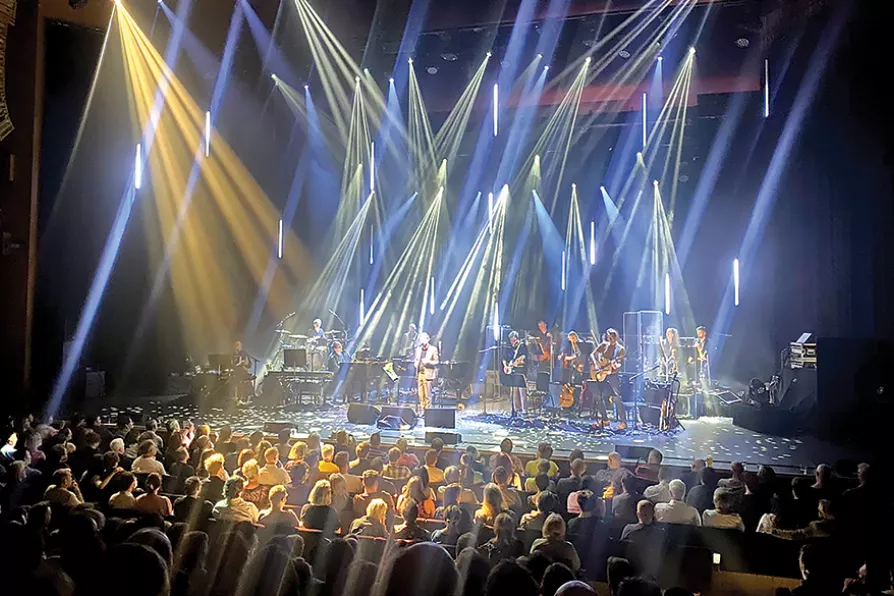Climate activist and writer JANE ROGERS introduces her new collection, Fire-ready, and examines the connection between life and fiction
A memory lane like no other
Neil Hannon songwritting has withstood admirably the often cruel passage of time, writes JAMES WALSH

 Neil Hannon at the Barbican aided by an orchestra and some very fine musicians
[Carmen Fishwick]
Neil Hannon at the Barbican aided by an orchestra and some very fine musicians
[Carmen Fishwick]
The Divine Comedy
Barbican, London
“MAYBE it’s tonight. Maybe tomorrow night, next week, next month, next year / We’ve only time to fear”
Similar stories

WILL STONE is impressed by a tour de force rendition of three decades’ worth of orchestral chamber pop

New releases from Toby Hay, Bruce Springsteen, Bonnie Dobson & The Hanging Stars

MIK SABIERS wallows in a night of political punk and funk that fires both barrels at Trump

Reviews of Ella Fitzgerald, My Morning Jacket, and Toria Wooff










